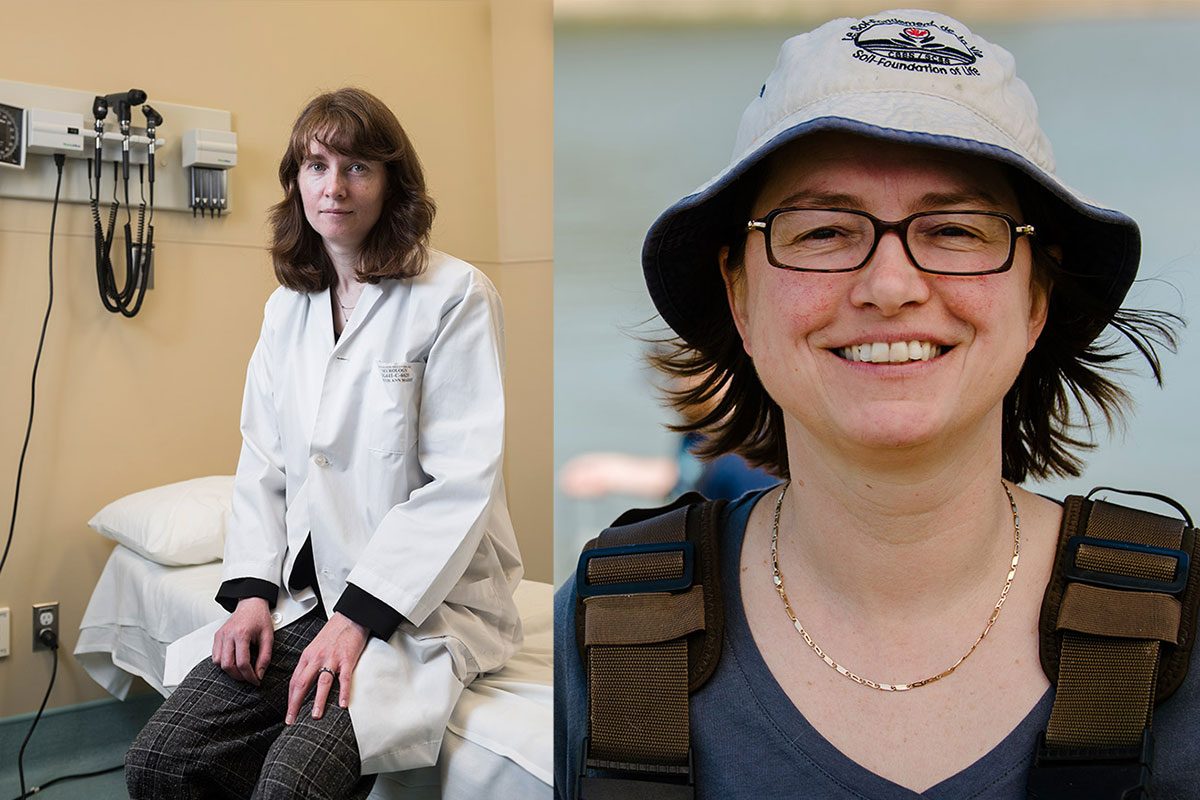
(L-R) Ruth Ann Marrie and Annemieke Farenhorst.
Duo among Canada’s most powerful women
U of M researchers named to Canada’s Most Powerful Women: Top 100 Awards
Annemieke Farenhorst—one of North America’s leading experts in the environmental fate of organic chemicals in soil and water—and Ruth Ann Marrie—known for her pioneering discoveries of the impact of co-existing health conditions on people with multiple sclerosis—have been named a Women’s Executive Network (WXN) 2016 Canada’s Most Powerful Women: Top 100 Award Winner in the ‘trailblazers and trendsetters’ category.
Launched in 2003, the Top 100 Awards celebrate the incredible accomplishments of Canada’s top female executive talent as well as their organizations and networks.
Award winners are proven achievers who are strong contributors to their organizations, their fields of endeavour and their communities.
“Drs. Farenhorst and Marrie are each contributing significantly to their fields of research and teaching in ways that build and enhance knowledge in each of their fields of scientific discovery,” said Digvir Jayas, vice-president (research and international) and Distinguished Professor at the U of M. “We are proud of their achievements and leadership, and congratulate them on this recognition.”
Farenhorst, a professor soil science in the Faculty of Agricultural and Food Sciences, is a trailblazer on three fronts: for the advancements she has made in her science; for the leadership she provides in advancing women in science and engineering professions; and for her dedication to strengthening strategies for the recruitment, retention and success of Indigenous students in university programs.
She is among the most celebrated soil scientists in Canada, and her pioneering work includes the application of digital terrain modeling and near-infrared reflectance spectroscopy in assessing the spatial variability of pesticide retention and transport in soil-landscapes.
She holds the Natural Sciences and Engineering Research Council (NSERC) Chair for Women in Science and Engineering (CWSE) Prairie region.
She also leads the CREATE H2O program, funded by NSERC, for First Nations water and sanitation security that is designed to address research science and training gaps that are preventing effective, culturally appropriate investments in water and sanitation security on First Nations reserves. It is the first science-engineering research training program in Canada that combines technical water and wastewater management training with Indigenous theory, law and methodological skills training.
Marrie, a professor in the departments of internal medicine (neurology) and community health sciences at the Max Rady College of Medicine, is internationally known for her innovative work in epidemiology and her pioneering discoveries of the impact of comorbidity (co-existing health conditions) on people with multiple sclerosis (MS). The impact of comorbidity in MS was a novel avenue that had not been explored in the field of MS before she began her work.
Her research has generated multiple important observations. She published the first report suggesting that vascular comorbidities (diabetes, hypertension, hyperlipidemia, ischemic heart disease and peripheral vascular disease) adversely affect disability progression in MS. She has also identified that pre-existing comorbidity is associated with delays in diagnosing MS, more severe disability at diagnosis, and differences in clinical phenotype.
Most recently, she has shown that comorbidity increases the risk of hospitalization and mortality in MS. She has developed methods to use health insurance (claims) data to study comorbidity in MS, which are being adopted by researchers internationally.
The potential implications of her work are broad and highly clinically relevant. Her findings suggest that preventing and treating comorbidity may offer a new avenue for improving health outcomes in people with MS using therapies that are already available and less costly than MS-specific medications. The impact of this work is such that she was asked to join the prestigious International Advisory Committee on Clinical Trials in MS, and to lead an international effort to coordinate research on comorbidity in MS as the field moves forward.
Marrie is a Don Paty career scientist, director of the MS Clinic at Winnipeg’s Health Sciences Centre and holds The Waugh Family Chair in Multiple Sclerosis.
Farenhorst and Marrie will be honoured during a gala celebration at the Metro Toronto Convention Centre on November 24. The U of M now has 12 women who have been named Canada’s Most Powerful Women: Top 100 since the awards began.
Research at the University of Manitoba is partially supported by funding from the Government of Canada Research Support Fund.







Gefeliciteerd Annemieke , wij zijn bijzonder trots op jou
Als onze dochter ben je heel erg knap !
Paps and mams.